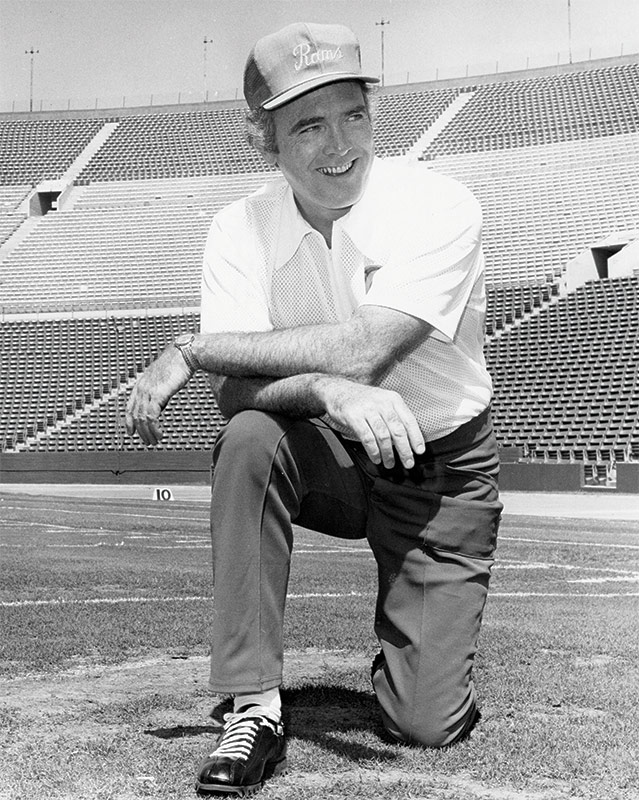We tend to celebrate football coaches more often than military figures, politicians, or even team leaders in other sports. They are literally put on pedestals, given book deals, asked to comment on football games, and, every so often, provide political advice. Often times, these other roles are unsuited to football coaches—a profession that rewards men who laser focus on football to the exclusion of everything else.
Fortunately, these hyper-obsessed types are usually rewarded in the long run by inclusion in the NFL Hall of Fame, particularly if the coach managed to lead a winning team to the Super Bowl.
There also should be room in the Hall of Fame for coaches who were great teachers, inspirational thinkers, and tradition-busters who refuse to buy into the conventional wisdom—men like Chuck Knox '54, coach of the L.A. Rams, the Buffalo Bills, and Seattle Seahawks. Knox is the 10th winningest coach in NFL history (the other nine are already in the Hall). One of Chuck's most quoted sayings is "What you do speaks so well, there's no need to hear what you have to say."
What Chuck did in his two-decade head-coaching career, from 1973 to 1994, certainly qualifies him for inclusion in the Hall of Fame. And the way he did things, mirroring the education he received here at Juniata, should be emulated not only on the football field but as a blueprint for success in any field.
Chuck studied history at Juniata, but he also celebrated the benefits he received from the other classes he took. His halftime speeches were littered with references from literature, business, and history. His offensive philosophy of running the ball, running the ball, and occasionally running the ball, known at the time as the "Ground Chuck" offense, is a mirror for a wide-ranging education. You must master the fundamentals of life before you seek success. Unlike some executives, politicians, and yes, even football coaches, Chuck Knox knew that throwing it long every time and hoping for the best was a fool's errand.
His achievements bear this out. He was a three-time Coach of the Year (1973, 1980, 1984) who took a chance on a young African-American quarterback out of Grambling State University named James Harris. In 1973, Knox was the first coach to regularly start an African-American quarterback. It would take another two decades before teams regularly drafted quarterbacks based not on their complexion but on the content of their talent and character.
The wisdom of another "Knoxism," "work will win, wishing won't," belies the injustice done to this man's great character. He put in the work, winning 193 games, losing 158 with one tie. He led the Rams to five consecutive division championships. He so cherished his education at Juniata that he gave his largest financial commitment to his alma mater, not to help out the athletics program, but to endow a professorship in history. He didn't get a statue, but the lessons delivered by our Knox Professor of History will continue to influence our students long after the patina of a bronze effigy has worn away.
In late summer, when sportswriters start voting for the Pro Football Hall of Fame right before the season starts, please take time to lobby your local sportswriters, coaches, or any football fan who will listen. Tell them, "It's only through admitting your mistakes can you profit from them."
Yes, another Knoxism. But let's put this in the context of my career field, higher education. Chuck has done the work, he has achieved at the highest level. He has set records and made history. When college professors see work like that, they award students an "A." It is time to reward him. He's had enough hard knocks in a very, very tough game.





